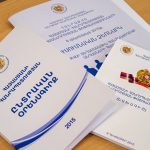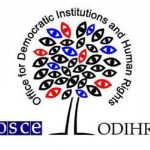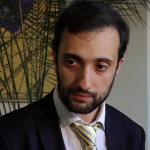- 16 June, 2016
- Elections, Announcements

We, the representatives of the civil society organizations, having participated in 4+4+4 format discussions, record that the Electoral Code of Armenia, adopted in May 2016, is a significant setback compared with the previous Electoral Code, vis-à-vis free formation and expression of people’s will, ensuring and effective protection of equal electoral right, as well as transparency of electoral process and effectiveness of public oversight.
We consider that the above-mentioned issues, set up by the recommendations based on the consent between the governing and non-governing political parties on “organizational-technical mechanisms of the control over the legitimacy of electoral process in the new Electoral Code,” failed to be solved, though some technical amendments provided by that consent may be considered as a positive development compared with the regulations adopted in May 2016. We particularly attach importance to
- introducing mechanisms for cleaning voter lists via pre-registration system to get a right to participate in the voting process (issuing ID cards with fingerprints of ten fingers, creation of electronic storage of voters’ biometric data), which may partially solve the issue of inflated voter lists,
- creating opportunities for providing video recording and live broadcasting in the polling stations
In order to be really effective we think that the mentioned mechanisms need further improvement. At present, there are serious concerns with the possibility of misuse of informativity of fingerprints during voter identification and the problems of identifying them, as well as with the quality of video recording and the procedure of provision of video materials, which are not planned to be provided by law.
As for the joint official Commission with the equal participation of authorities, civil society representatives and opposition factions of the parliament to be set up by the decision of the Government of Armenia for monitoring the registration process aimed at providing voters with new sample of ID cards, organizing the work on citizens’ awareness, it is impossible to evaluate the initiative and especially the effectiveness of its activity at the present stage.
The references on the voters who participated in voting with serial numbers provided by Electronic Voting Machines, which are recommended as solution to the problem of accessibility to voter lists of those who participated in voting are far from fully meeting the requirement. The sole fact that the references should not be official documents (should not be signed or sealed) and even should not contain the numbers of respective electoral district and electoral precincts, will make impossible their identification and will neutralize the evidential significance of those references, and their significance, consequently usefulness for defending electoral right. In other words, the state shall fail to assume provision of most significant information – responsibility for the authenticity of the content of participants’ list.
Effective means for public oversight of pre-registration process or the fact of participating in the voting, for instance, access to information parallel with pre-registration process, comparing the given fingerprints and oversight of its results are not ensured either by the new Electoral Code, or by the submitted recommendations. Neither are the issues on access to the voter lists and provision of effective control by interested people solved.
We need to mention that organizational-technical mechanisms of the control over the legitimacy of electoral process based on the consent between the governing and non-governing political parties do not ensure that the elections would be fair and free. There are grave concerns with the application of regional proportional district lists of the political parties participating in the elections, defined by Electoral Code, and misuse of administrative and financial resources through them, possible impact of business and criminal authorities on the electoral process. The risks of restricting the formation of political coalitions and abuse of Army, discrimination against the Armenian citizens residing abroad are not eliminated. Numerous other issues of concern have been neglected either.
Imposed and consistently preserved restrictions on observation missions and mass media are of great concern and are certain to affect the transparency and effectiveness of public oversight, showing constant negligence of the voiced issues by the authorities. Moreover, access to the innovation (provision of references on voters’ participation according to the serial number of voter lists printed by Electronic Voting Machines of all polling stations and their comparison with paper-based voter lists) recommended for political parties and proxies, is not intended for observation missions and mass media.
We consider that the electoral process should be viewed as a complete system and selective and controversial reflection of its certain components is not in power to ensure general recovery of the electoral process. Obvious pressure on public oversight of elections may actually disperse all expectations regarding introduction of modern technologies.
The restrictions imposed on public oversight should be immediately lifted, the rights of observers and mass media representatives should be returned to the level of at least the regulations of the previous Electoral Code and recommendations of OSCE/ODIHR should be properly applied by eliminating mandatory tests to be passed by observers, giving opportunity to observation missions to appeal the violations of objective electoral rights and to grant interested persons more comprehensive safeguards to appeal election results.
Sona Ayvazyan, “Transparency International Anticorruption Center” NGO
Levon Barseghyan, “Journalists’ Club “Asparez”” NGO
Stepan Danielyan, “Collaboration for Democracy” NGO
Tigran Yegortan, “Europe in Law Association” NGO
Artak Zeynalyan, “Rule of Right” NGO
Daniel Ioannisyan, “Union of Informed Citizens” NGO


 Հայ
Հայ Рус
Рус


